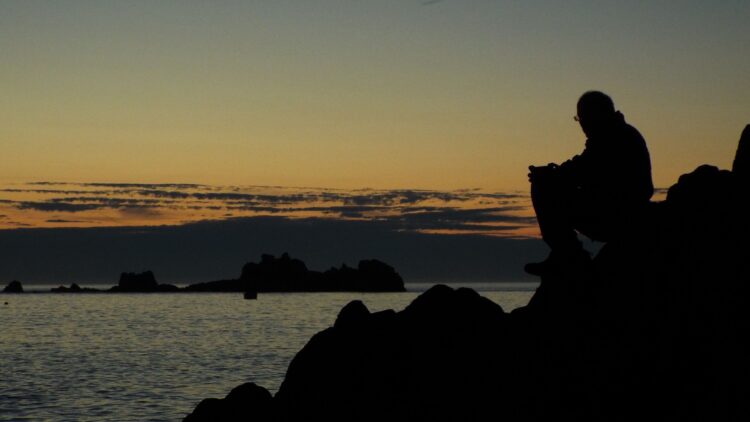Looking back on what’s happened since March of 2020, it’s hard to say for sure just what we’ve all learned from the first global pandemic of our lifetimes. However, if anything, we’ve all spent more time alone now , or at least without the level of social interaction we were accustomed to.
Turns out, cutting off social interaction has both good and bad effects on humans, and those can be felt both physically and mentally. It’s important to remember that we’re all a bit different, so we all experience social isolation differently — sometimes cancel social plans really hits the spot, and sometimes you just need to be around other people — but there are some general things we can watch out for.
Relaxation

Hey, taking a mental health day to unplug from daily life and set responsibilities aside works . More than ever, we get bombarded by information from countless sources all day, which increases stress levels, even when it’s not all necessarily bad. Removing all that stimulating stuff really does help you relax and refresh mentally.
Increased Creativity

When you’re left to your own devices for a while, many of the hurdles to creative thinking, like doubts about the expectations of others, are removed. You can daydream freely, and often that sparks connections or random thoughts that take off in new, exciting directions.
Irritability

Even just a day cut off from other people will make some of us more cranky. It’s amazing how little time it takes for us to lose the knack of interacting with people and picking up on social cues, and that can lead to some noticeable irritability.
Loss of Confidence

It would probably take more than one day on your own to chip at your confidence, but it can certainly happen. Just as some isolation can help those creative thoughts rise up and break through, it can also let negative self-talk in and give it a megaphone, and we all know where that leads.
Chills

When you’ve been frozen out of the social scene, it can cause actual chills. At least, that’s according to a study by the Association for Psychological Science , in which the researchers “found that the experience of social exclusion literally feels cold,” and that those who felt socially excluded would seek out things like hot soup or coffee for comfort.
“Our research suggests that warm chicken soup may be a literal coping mechanism for social isolation,” said Geoffrey Leonardelli from the University of Toronto’s Rotman School of Management.
Distress

What have we all done too much of while isolated? Watch TV, of course. Spend enough time away from other humans, binge-watching TV all day, and you could feel the loss quite keenly. A study out of Ohio State University found that when people replace their normal social activity with TV, and the show comes to an end, it’s almost like a break-up.
Increased Risk of Tumors

Who would have guessed that time alone could have such serious health risks? It seems unlikely, but a study out of the University of Chicago Medical Center found that social isolation can increase tumor growth in mice, which obviously aren’t humans, but it was certainly enough to get the researchers’ attention.
Inability to Learn

Chronic loneliness can wreak havoc your brain in some pretty unfortunate ways. Research out of the University of Michigan has shown that lonely people have more difficulty with tasks like solving puzzles, and a University of Chicago study showed that the ventral striatum, an area of the brain linked to learning, had a duller response in lonely people than it did in those with active social lives.
Better Decision Making

When you get a bit of time to yourself and banish distractions, you can often cut through the chatter and see matters more clearly. So, when you need to make an important decision, it might be a good time to tune out the world for a while.
Increased Anxiety

Just as negative self-talk can creep in and undermine our confidence, there’s also room for our imaginations to build up unlikely horrible scenarios and play up our worst fears. So, if you’re feeling mounting anxiety, some socializing might be just the thing to help — even when that’s tough to do.

















































